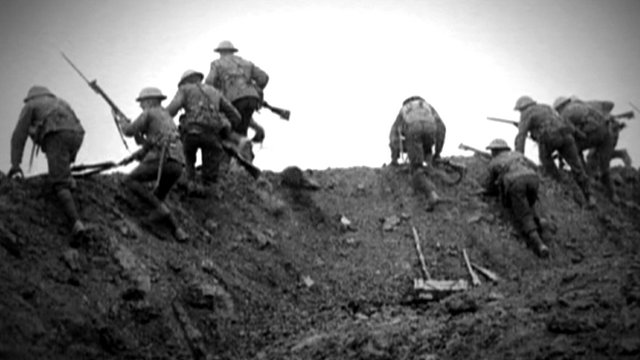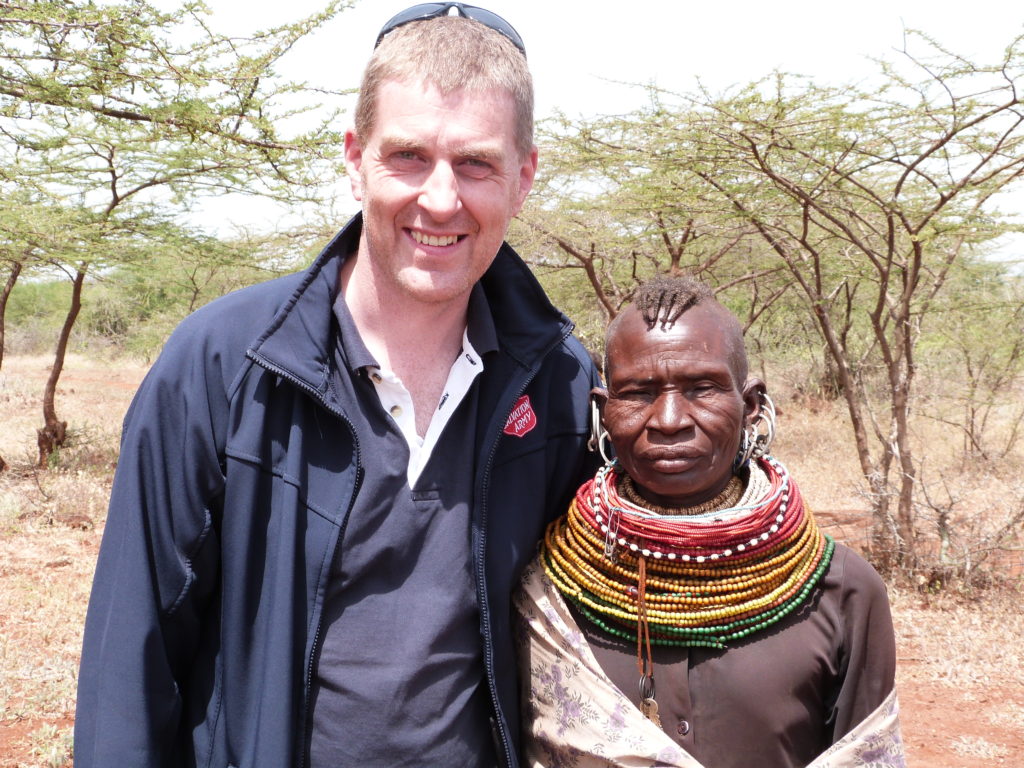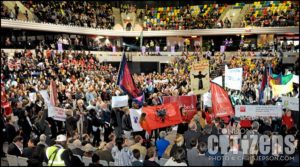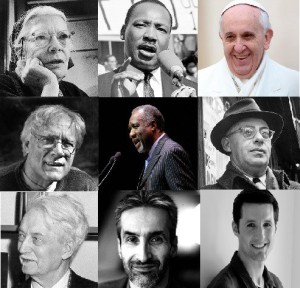
By Captain Sam Tomlin (Corps officer, Liverpool Stoneycroft Corps)
War has once again come to Europe. The tangible shock and horror is evident across the world. Writing but a few weeks after Russia invaded Ukraine, all major news outlet leads with updates, and almost every other news item is pushed well aside.
What ought followers of Jesus to make of this war, and war more generally? Specifically for the purpose of this article, how should Salvationists respond? Is it possible to love your enemy and kill them, as just war theory suggests, or is a pacifist approach a more faithful route for discipleship, where lethal violence is off the table? We have been here before, of course, and in order to answer this question, it will be important to briefly reflect on how our predecessors have responded.
Continue reading “Can you love someone and kill them? A reflection on war, pacifism and the Salvation Army”


 Last night saw around 6,000 people gather at the Copper Box arena in Olympic Park in Stratford for the Citizens UK London Mayoral Assembly. Front runners in the mayoral race Zac Goldsmith and Sadiq Khan were present and made encouraging commitments on housing, refugees and the Living Wage. The night also saw a fantastic presence of London Salvationists, with nearly 200 present from William Booth College and 10 London corps: Ilford, Stepney, Raynes Park, Southwark, Nunhead, Camberwell, Bromley, Wimbledon, Woodford and Mitcham. The College band played during the assembly and Captain John Clifton negotiated with Zac Goldsmith on his reaction to Citizens’ asks on Community Land Trusts. More information and reaction will be posted in the coming days, but we thought it would be good to simply share a small selection of the pictures from the assembly to remember a wonderful night:
Last night saw around 6,000 people gather at the Copper Box arena in Olympic Park in Stratford for the Citizens UK London Mayoral Assembly. Front runners in the mayoral race Zac Goldsmith and Sadiq Khan were present and made encouraging commitments on housing, refugees and the Living Wage. The night also saw a fantastic presence of London Salvationists, with nearly 200 present from William Booth College and 10 London corps: Ilford, Stepney, Raynes Park, Southwark, Nunhead, Camberwell, Bromley, Wimbledon, Woodford and Mitcham. The College band played during the assembly and Captain John Clifton negotiated with Zac Goldsmith on his reaction to Citizens’ asks on Community Land Trusts. More information and reaction will be posted in the coming days, but we thought it would be good to simply share a small selection of the pictures from the assembly to remember a wonderful night:  By Andrew Manley
By Andrew Manley By Sam Tomlin
By Sam Tomlin By Sam Tomlin
By Sam Tomlin
